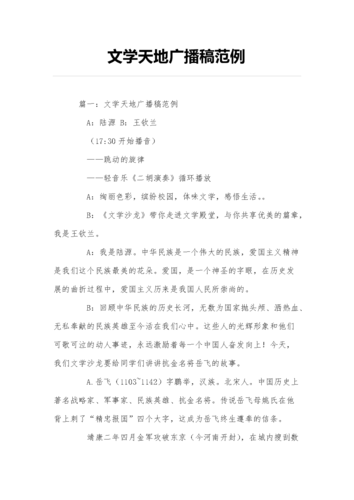Title: The Study of Chinese Language and Literature in Middle School
In middle school, students study Chinese language and literature, which is an essential part of their overall education. This subject encompasses a wide range of skills and knowledge, including Chinese language proficiency, literature appreciation, and cultural understanding. Let's explore the key components of the study of Chinese language and literature in middle school.
Chinese Language Proficiency:
Chinese language proficiency is the foundation of the Chinese language and literature curriculum. Students learn the principles of Chinese phonetics, vocabulary, grammar, and writing. They also practice listening, speaking, reading, and writing in Chinese to enhance their language skills. Proficiency in Chinese language not only enables students to express themselves accurately but also lays a solid foundation for their future studies and career development.
Literature Appreciation:
Literature appreciation forms a significant part of the Chinese language and literature curriculum. Students are exposed to a variety of literary works, including classical Chinese poetry, essays, novels, and modern literature. Through the study of these works, students learn to appreciate the beauty of language, understand the thoughts and feelings of the authors, and interpret the cultural and historical significance of the literature. Literary appreciation fosters students' imagination, creativity, and critical thinking, nurturing their aesthetic sensibility and emotional intelligence.
Cultural Understanding:
The study of Chinese language and literature also contributes to students' cultural understanding. Through literary works, students gain insights into Chinese history, tradition, values, and social issues. They not only expand their knowledge of Chinese culture but also develop respect and appreciation for cultural diversity. Understanding Chinese culture through its literature helps students to build a sense of cultural identity and global awareness, which is crucial for their personal growth and crosscultural communication.
Guiding Principles for Students:
1.
Cultivate a Habit of Reading:
Encourage students to read extensively, including literary classics, modern novels, poetry, and essays. Reading broadens their horizons and enriches their knowledge and language skills.2.
Embrace Creative Writing:
Inspire students to engage in creative writing, such as composing essays, poems, and short stories. Writing cultivates their language expression and nurtures their creativity.3.
Explore Cultural Diversity:
Encourage students to explore literature from different cultures, promoting an openminded attitude and a global perspective.
4.
Relate Literature to Life:
Help students connect literary works to their daily lives, fostering empathy, emotional intelligence, and moral reasoning.In conclusion, the study of Chinese language and literature in middle school encompasses language proficiency, literature appreciation, and cultural understanding. It equips students with language skills, fosters aesthetic appreciation, and enhances their cultural awareness. By following the guiding principles, students can fully benefit from this subject and develop into wellrounded individuals with a deep appreciation for language, literature, and culture.









